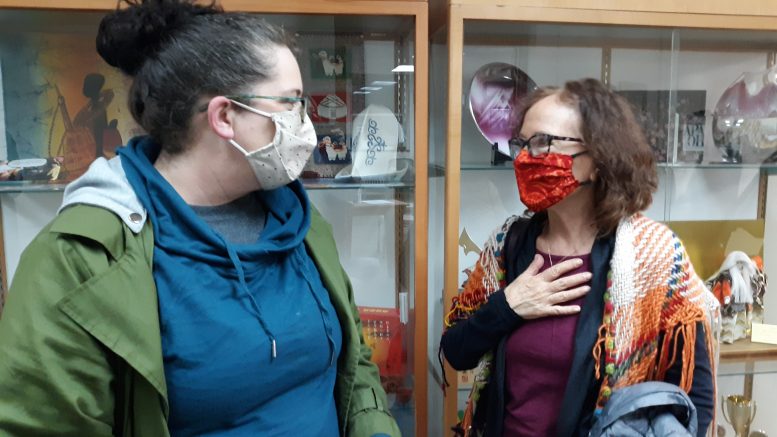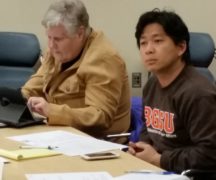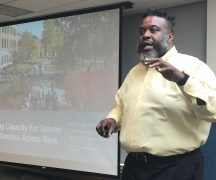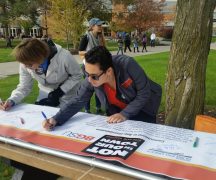By JAN LARSON McLAUGHLIN
BG Independent News
In June, Bowling Green City Council voted to create a three-person panel to handle complaints of discrimination in the city.
Proponents of that provision are concerned that the public has no idea that such a panel exists to hear their complaints. The concern was discussed last week during meetings of Not In Our Town Bowling Green and the city’s Human Relations Commission.
“The process doesn’t mean anything if the public doesn’t know about it,” NIOT member Gary Saunders said.
“There needs to be an educational campaign to let people know about this. So people know it exists,” said Emily Dunipace, a member of NIOT and HRC.
At the request of La Conexion, Bowling Green City Council voted in June to expand the community’s anti-discrimination laws. The changes were in response to the attack more than two years earlier of two teenage customers of color by two white men in the Waffle House on East Wooster Street.
The four changes added to the city’s anti-discrimination laws were:
- Adding ethnicity, source of income, and immigration status as new protected classes to the existing code.
- Including the concept of “actual” and “perceived” classes, as many discrimination incidents are based on perceptions.
- Improving accountability and transparency in the reporting system by establishing a panel to accept and handle complaints. The panel expands this system from the city administrator to also include an elected member of City Council, as well as the president of the Human Relations Commission (or their designee).
- Protecting employees who report or intervene to stop acts of discrimination.
“This is a more transparent, more accountable process that people can trust,” said Beatriz Maya, head of La Conexion.
“If there is a complaint, it will kick in,” council member Bill Herald said during the NIOT meeting.
However, Maya expressed her concerns during the NIOT meeting that the public is unaware that the complaint process exists. There is no form on the city’s website that people can access for filing a complaint, she pointed out.
“Now is the time to make sure it gets implemented,” Maya said. “Otherwise it’s going to remain on paper.”
Joe Fawcett, the city’s director of public services, reported during the HRC meeting that Mayor Mike Aspacher and Municipal Administrator Lori Tretter are working on a process to accept complaints.
One provision requested by La Conexion that failed in June to make the ordinance was a requirement that businesses train their employees on anti-discrimination policies – or be liable if they don’t.
The training is already being offered free of charge by the Bowling Green Police Division, but the city cannot require businesses to send their employees to it, council members said.





